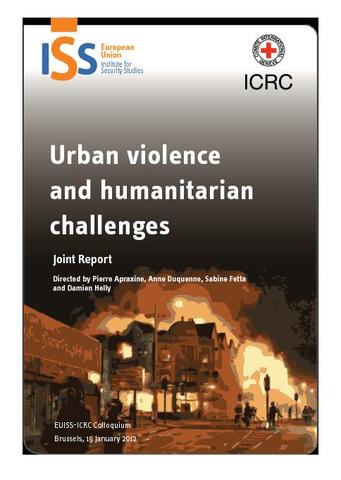You are here
Urban violence and humanitarian challenges

This second colloquium organised jointly by the International Committee of the Red Cross (ICRC) and the European Union Institute for Security Studies (EUISS) aimed to present the causes and humanitarian consequences of urban violence, as well as related trends and challenges for the European Union and humanitarian actors. Two case studies have been selected, focusing on different types of violence affecting urban environments. The first case study examines pilot projects to address humanitarian needs arising from organised crime and gang violence in megacities; the second is an analysis of the humanitarian challenges emerging from urban violence in the context of uprisings, referring specifically to the lessons learned from the protests in the Arab world.
Urban violence represents numerous challenges for policy makers and humanitarian actors alike. Today, more than half of the world’s population lives in cities and it appears that urban centres will absorb almost all new population growth in the coming decades. It has therefore become increasingly important to understand the dynamics of violence in an urban setting.
By bringing together experts, academics and representatives from various relief organisations, the ICRC and the EUISS hope to have contributed to the debate and spurred further interest in this increasingly important issue.
The present publication includes summaries of both the presentations provided by the speakers and the discussions held during the colloquium.